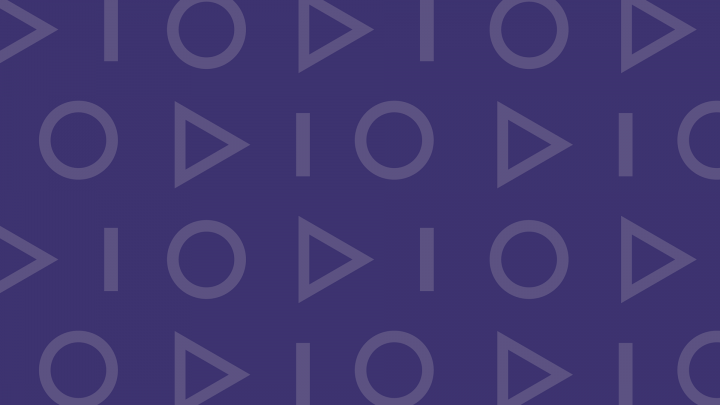Equality, Equity and Accessibility at Jamk University of Applied Sciences
One of Jamk's core values is responsibility. This is reflected in our operations by our desire for all members of our community to feel well and for everyone to have equal opportunities for studying and working. Diversity is a strength. The promotion and development of equality, equity, and accessibility is our ongoing work.

Jamk takes principles of equality and equity into account in all its decisions, as well as in their preparation and implementation. An open and diverse Jamk provides community members with opportunities to develop, learn, and influence the evolution of the community.
Our actions are guided by the equality and equity plan, from which a few highlights are presented below. The actions and responsibilities for the objectives can be found in the plan.
Within our university of applied sciences workplace community, the following areas have been identified as requiring special attention:
- At Jamk, we operate responsibly, ethically, and treat people equally in all employment, study, teaching, and administrative practices.
- The activity and sense of responsibility of individuals in promoting equality and equity is central: advancing equality and equity is an obligation for every member of the Jamk community. Jamk has zero tolerance for all forms of discrimination.
- Equality is developed by refining and disseminating good practices and by identifying shortcomings and proposing solutions. By working in this way, equality and individual rights are realised within the Jamk community.
- If discrimination occurs, it is addressed immediately and systematically. In cases of discrimination, the early support model for staff and students is followed.
- As an employer, Jamk develops working conditions and practices with consideration for the needs of the workplace, as well as the procedures used when selecting staff and making personnel-related decisions. Measures to promote equality must be effective, appropriate, and proportionate, taking into account the operating environment, resources, and other circumstances.
We develop our organizational culture through goals identified from various themes.
Leadership culture of practice
Good leadership is Jamk’s key success factor. The aim of leadership in equality and non-discrimination is that every member of the higher education community feels treated fairly, feels their work is valued, and appreciates the work of others.
The results of staff surveys and workplace assessments are utilized to develop an equal, equitable, diverse, and pluralistic organizational culture.
Goal 1: Leadership takes into account the diversity of staff and students.
Goal 2: Supervisors work to create and maintain a fair, just, inclusive, and inspiring organizational culture.
Goal 3: All Jamk members are obliged to promptly address any occupational safety, discrimination, or inequality issues they observe or become aware of.
Goal 4: Development of monitoring and follow-up indicators.
Goal 5: Identifying and eliminating practices and structures that cause inequality.
Goal 6: Reconciling work and other aspects of life.
Goal 7: Jamk is an active player in building transparent RDI (Research, Development, and Innovation) and educational activities, free from discriminatory structures or practices based on gender or any other personal characteristic.
Recruitment, Remuneration and Career Development
Jamk is committed to being an equal employer, making personnel selections based on competence, skills, and suitability. Recruitment processes are fair, clear, and transparent. Jamk supports career development in accordance with the principles of equality and non-discrimination. Job rotation is part of Jamk’s personnel policy.
Goal 1: Recruitment processes are transparent and guided by clear operating instructions.
Goal 2: An open and transparent remuneration system.
Goal 3: The remuneration system promotes fairness in pay, supports the development of staff competence, encourages staff to pursue more demanding and diverse tasks, and motivates better work performance.
Goal 4: Equal training and development opportunities regardless of job or unit.
Teaching and Studying
As an international higher education community, Jamk is committed to implementing equality and non-discrimination in student admissions, teaching, and studies.
Today, the student body is highly diverse. Study groups may include students of various ages and life situations. Different nationalities and cultures meet on our campuses. Activities are guided by the Universities of Applied Sciences Act and Decree, degree regulations, rules of order, and ethical and pedagogical principles, ensuring a high-quality, equal, and safe educational, study, and work environment.
Goal 1: All applicants have equal opportunities to apply for and be admitted to Jamk’s programs.
Goal 2: The study and learning environment (learning materials, teaching technologies, teaching methods, and assessment procedures) provides all students with equal opportunities to study and complete their degrees on time.
Goal 3: Jamk fosters an equal, fair, safe, inclusive, and inspiring study atmosphere.
Goal 4: Diverse guidance and support services enable smooth progress in studies.
Goal 5: As equal members of the higher education community, students have the opportunity to influence their affairs and the development of Jamk, including matters of equality and non-discrimination.
Goal 6: Fair treatment in student selection, study rights, or assessment.
Goal 7: We encourage students to provide feedback.

Annukka Akselin

Kaisa-Mari Jama

Sirpa Tuomi
At Jamk, accessibility means that every student and staff member can experience equality and inclusion regardless of their personal characteristics or life situation.
The facilities, digital systems, learning environments, teaching methods, and attitudes enable the inclusion and equality of people with various personal characteristics and those living in different life situations.
Jamk’s goal is that services are equally and consistently available to everyone, and everyone has equal rights to education.
Values, Attitudes, Organizational Culture, Leadership
Jamk promotes the well-being, sense of community, and open interaction of the entire higher education community. The core of the organizational culture is equality, non-discrimination, equity, and inclusion. Jamk is a study and workplace free from discrimination, harassment, and racism. Accessibility is actively and systematically promoted as part of Jamk’s strategy and quality assessment.
Physical Accessibility and Barrier-Free Design
Physical accessibility means buildings, spaces, and outdoor areas are accessible to all users and support students and staff in their work. In a barrier-free work and learning environment, movement is easy because, already at the design stage, attention has been paid to the widths of corridors, elevators, and doorways — not forgetting furniture design and ergonomic workstations. The nearest entrances to parking and accessible parking areas have electrically operated doors. A clear signage system in the premises aids accessibility.
In workspaces, attention is paid to acoustics during construction and renovations, supporting undisturbed work with acoustic and absorption solutions. Similarly, choices related to visual perception, such as adequate and properly selected lighting and the use of colors, are considered. Maintaining healthy and safe spaces includes adequate ventilation and a suitable working temperature; good indoor air is supported by a cleaning service program. Safety is also supported by safety briefings, planned drills, and safety materials. Student and staff restaurant services also offer options for those with special dietary needs.
Auditoriums have fixed induction loops. The lobby services will acquire portable induction loops that can be used temporarily in other spaces.
Individual needs can also be accommodated in the physical environment.
Digital Accessibility
At Jamk, the goal is that digital learning environments, teaching materials, services, and online content are accessible and provide learners with equal opportunities to study.
Jamk’s websites are subject to the Act on the Provision of Digital Services, which requires that public online services must be accessible. Each Jamk website’s accessibility statement explains how well the service meets the requirements of the Digital Services Act. Detected shortcomings are corrected as soon as possible.
The accessibility of information systems and learning environments in use is continuously improved. Accessibility is also considered in research, development, and innovation (RDI) projects and their outputs. We continuously develop staff’s accessibility competence.
Teaching and Learning
Accessibility in teaching and learning at Jamk means that diversity and inclusion of students are considered in curricula, teaching planning and implementation, teaching materials, and assessment. If necessary, students can apply for individual study arrangements to support their learning.
Support and Guidance
Accessible study and well-being support services facilitate smooth progress in studies. Students’ individual goals are considered in the Personal Learning Plan (PLP) and in PLP discussions with the teacher tutor. Due to learning difficulties or other factors challenging studies, students can apply for individual study arrangements to support their studies.
The Degree Student page compiles information under the “Wellbeing and Everyday Life” heading about well-being and study support services as well as matters related to students’ daily life.
Student Selection
At Jamk, all applicants have equal and accessible opportunities to apply for and be admitted to Jamk’s programs. Communications regarding student selection take into account the diversity of applicants and the accessibility of information. It is also possible to obtain individual arrangements for entrance exams.
Teacher Education
Accessibility and equality are part of the value base and core of Jamk’s teacher education. Accessibility is embedded in the pedagogical principles, curricula, and learning objectives of teacher education.
Jamk’s School of Professional Teacher Education also acts as a developer and researcher of accessibility expertise in learning through continuing education and research and development activities.
Communication
Jamk’s goal is that communication is as accessible as possible in all channels and content production (websites, intranet, newsletters, social media updates, presentation templates, audiovisual materials). All essential content is accessible bilingually, in Finnish and English.
Jamk regularly evaluates and develops the accessibility of communication based on user feedback and internal and external evaluations. Jamk regularly monitors the accessibility of communication channels and corrects identified accessibility deficiencies. The accessibility of websites and the intranet is monitored, for example, with the Siteimprove tool.
Jamk regularly develops staff’s communication accessibility skills and knowledge through various trainings and guidelines.
Student Union JAMKO
The student union JAMKO serves as a tool for students at the university of applied sciences to promote better education and overall well-being, and equality is one of its most important guiding values. Participation in JAMKO’s activities is possible regardless of an individual’s personal characteristics or background.
JAMKO strives to represent the diversity of students as well as possible. In JAMKO’s activities, inappropriate treatment, discrimination, or hate speech is not accepted. Participants commit to JAMKO’s principles of equality and safer spaces, and these are maintained together. JAMKO’s harassment contact persons support all Jamk students in situations of inappropriate treatment, discrimination, or bullying. JAMKO also supports the realization of accessibility, equality, and ethical principles at Jamk.

Sirpa Tuomi

Seija Eskola

